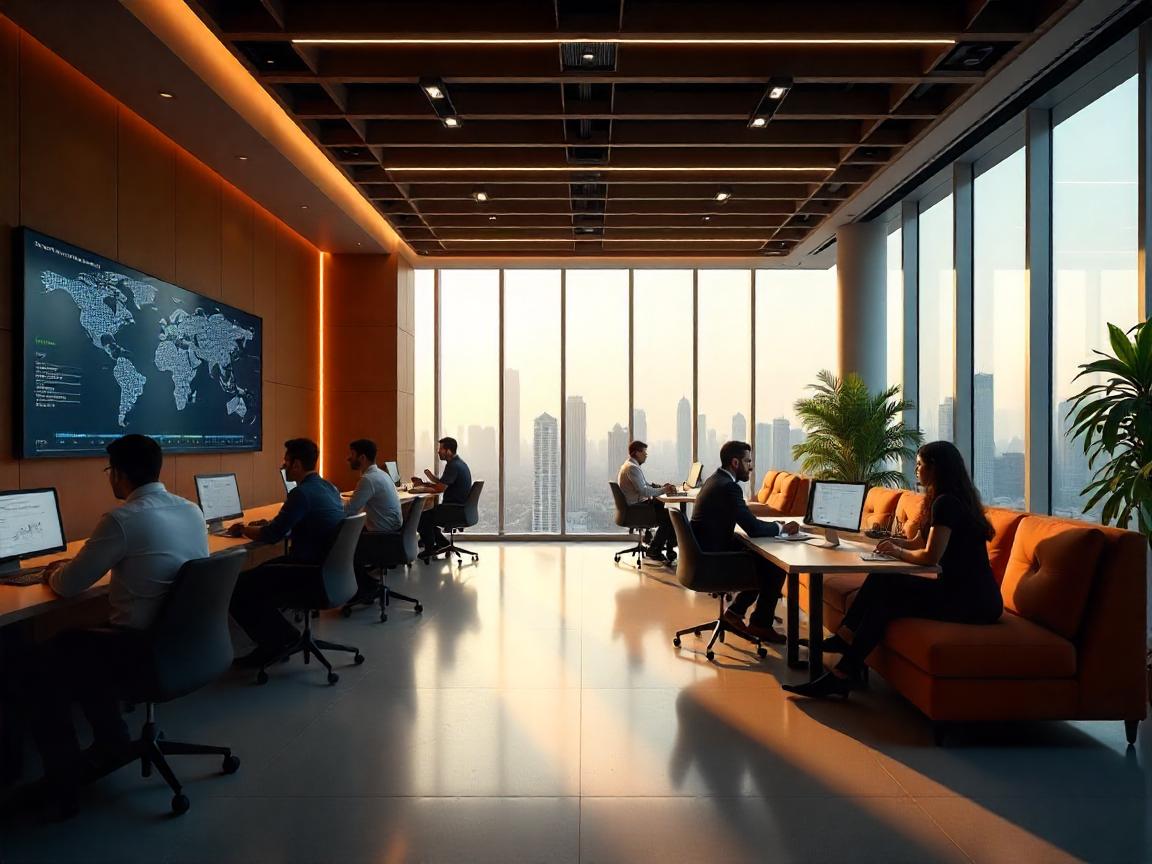
What Are GCCs—and Why India?
Global Capability Centers or GCC centres are the branches within a multinational, which are set up as in-house units to focus all the strategies. India has become a favourite not only on the basis of saving costs. According to NASSCOM there are about 1,580 GCCs in India, which is projected to grow by 10 percent per year until 2025 with revenues already reaching US $46, 000 billion in FY 2023
Such centres now have more AI, R&D, finance, tax programs, and cloud operations than before- they are more crucial than ever before
Flex Space: Why Managed Workspaces Suit GCCs
GCCs require the kind of space that is malleable, plug and play–or the speed of it. That is precisely what is offered by providers such as Awfis, CorporateEdge, and the Smartworks which has some short-term leasing and flexibility and most needed in times of uncertainty
UrbanWrk CEO Anuj Munot notes that half their work area expansion has been GCC-driven, which is possible due to such capabilities as IGBC-certified gyms, lounges and quick-fit outs in 30 to 45 days
Beyond Metro: Spreading Across Tier-III Cities
This space revolution is not relatively limited to Bengaluru and Mumbai. Smaller hubs such as Pune, Ahmedabad, Coimbatore are coming into the limelight with GCCs seeking to achieve cost advantage, digital infrastructure and the level of talent. In The Times of India these centres have been found to be “distributing the growth process”- they have been able to improve local economies and educating institutions to assist workplace innovation
Real-World Success Stories
Awfis Elite, Hyderabad: Held Meltwater, ABC Fitness GCCs, luxury lounge facilities, customizable office suites, and more- which are evidence that GCCs require more than just desk spaces
HSBC, Pune: Collaborated with Smartworks to collaborate on a 2,500-seat adaptable facility with committed AI research centers and video response rooms another reference to GCC innovative requirements.
Zeiss, Bengaluru:Started a GCC based on cloud, cybersecurity; has 2,500 employees now and an objective of adding another 2,500 by 2027
Expert Insight: A Shift in Workspace DNA
Global Capability Centers are no longer working in the shadows. These are turning out to be the innovation hubs of Fortune 500 companies. Ritu Bansal, Head of Corporate Real Estate at CBRE India, says this.
The GCC culture is changing and workspace has to undergo change. According to Manoj Marwah of EY India, GCCs prefer managed spaces because of their agility and speediness when setting up in particular There is a developing theme in discussions with workspace designers towards sustainability and branded identity, the desire was noted by GCCs, as agile spaces, which make their employees feel comfortable at home.
Data Point: GCCs and Real Estate Growth
UP-Morgan has measured that between 2022 and 2024, American companies rented out a significant amount of office space. They leased a total of 64.5 million square feet in the top seven Indian cities.
This surge is largely driven by the growth of Global Capability Centers (GCCs).
It is estimated that 50 percent of managed workspace activity in the year 2025 will be facilitated by GCCs .
The Indian GCC market is projected to balloon to nearly US $100 billion by 2030. More than 2,200 GCCs are expected to invite up to 2.8 million professionals to join their workforce.
What This Means for the Future
Support units are now becoming the key to enterprise strategy. GCCs are driving digital transformation, research and development, and innovation.
Managed workspaces are not just supplying desks. They are creating live ecosystems that include AI labs, wellness pods, and even green credentials. The result? Future-adaptable studios which signify the rise of India as a tech and an innovation super power.
Final Takeaway: Are You Ready for the Change?
GCCs are rewriting the play book of office. With the globalization of firms across India, their workspace demands are becoming more advanced. These demands are identity-driven, flexible, and focused on innovation. The question of how commercial real estate is going to change as a result, leads to very important questions. Are the tier-2 cities to emerge as the new innovation capitals of India? And most importantly: are conventional offices ready to experience this earth shaking change?
As an individual, I think that managed workspaces embody the workspace operating system of India. It is a powerful and flexible platform that will drive the next wave of innovation. Then comes the question, are we prepared to write the next update?